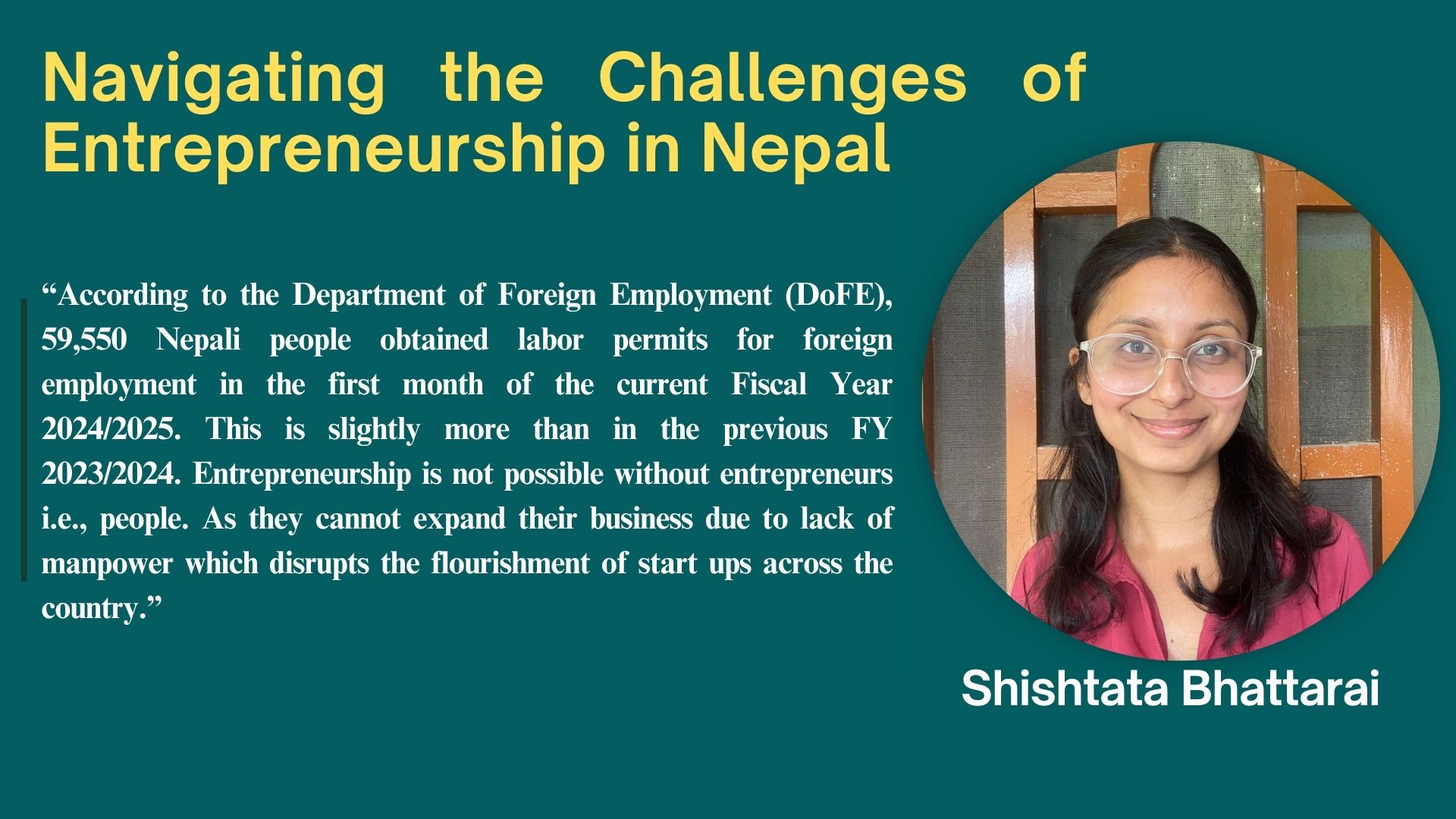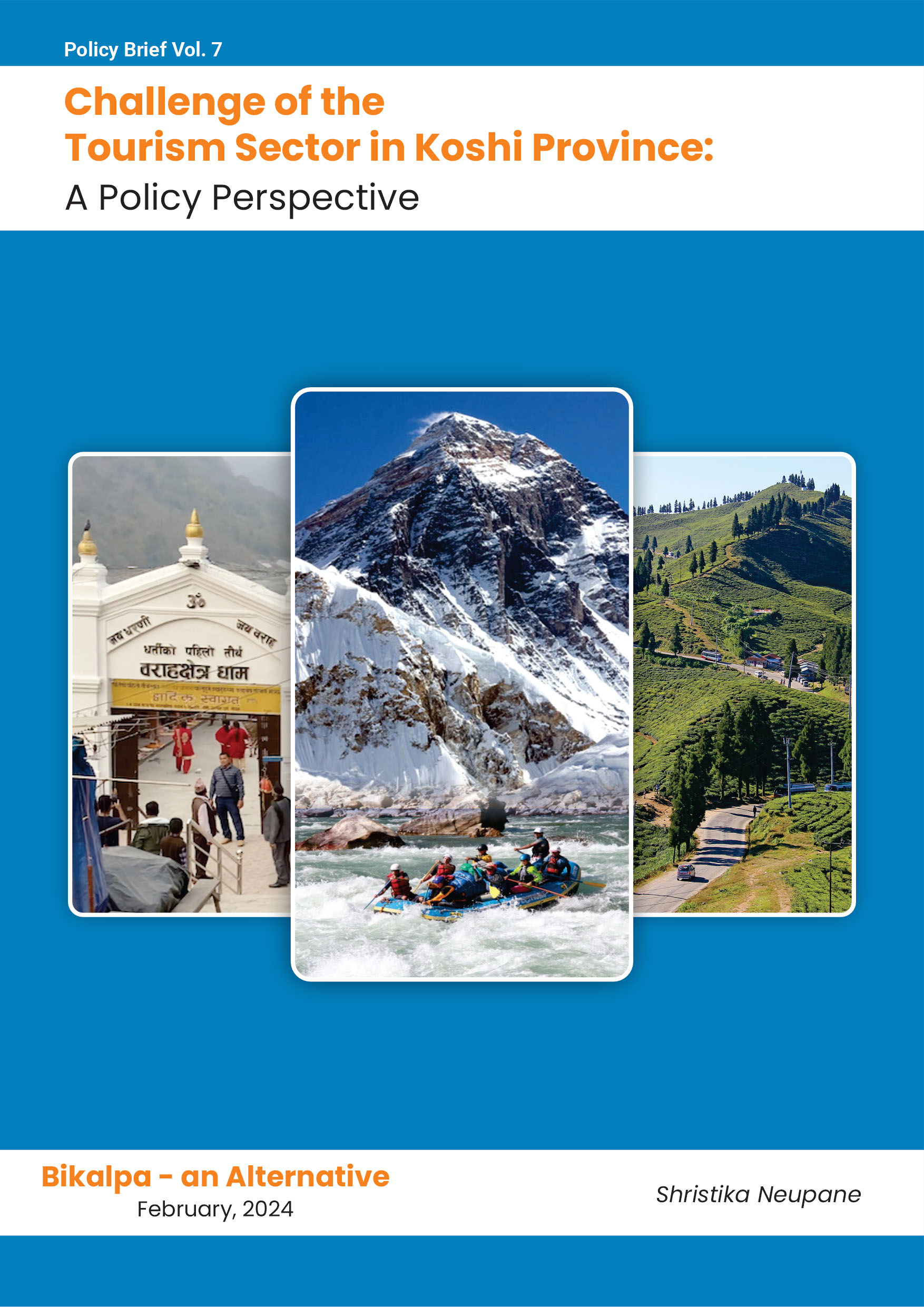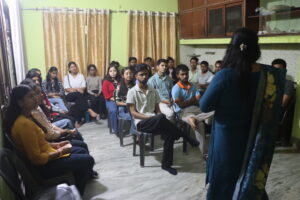Entrepreneurship involves such a range of activities and levels of analysis that no single definition is definitive. – Lichtenstein (2011, p. 472)
Entrepreneurship is such a vague term that a single definition cannot cover up all the activities and tasks that come under it. In simple terms, we can say that an entrepreneur is an individual who creates a new business, bearing most of the risk and enjoying most of the rewards. The process of setting up a business is known as entrepreneurship the includes designing, launching and running a new business from scratch. In other words, an entrepreneur refers to an individual or a group of partners who embark on an original path to create a new business. Entrepreneurship is all about one’s ability to take risks. It’s about the risk-taking and problem solving ability of an individual; the art of finding opportunities amidst the challenges.
The concept of entrepreneurship is quite new in Nepali society. The Nepali entrepreneurship landscape is still in its infancy. However, in recent years the numbers of entrepreneurs have increased steadily. According to a report by Nepalese Young Entrepreneurs’ Forum (NYEF), the number of startups in Nepal has increased by more than 50% in the last five years. It should be noted that since there is no rigid definition of entrepreneurship, all small business owners are labeled “entrepreneurs” which may contaminate the data.
Challenges faced by entrepreneurs
Nepal’s economic freedom score is 52.1, making its economy the 130th freest in the 2024 Index of Economic Freedom. Its rating has increased by 0.7 point from last year, and Nepal is ranked 27th out of 39 countries in the Asia-Pacific region. It may not be a remarkable achievement, nevertheless something is always better than nothing. Other challenges faced by entrepreneurs in Nepal are discussed below:
Lack of human capital: According to the Department of Foreign Employment (DoFE), 59,550 Nepali people obtained labor permits for foreign employment in the first month of the current Fiscal Year 2024/2025. This is slightly more than in the previous FY 2023/2024. In Shrawan of the previous Fiscal Year, 55,575 workers had gone abroad for work. As many as 112,593 students received foreign study permits (NOCs) to study abroad in the last fiscal year 2023/24. Right now, brain drain is at peak in the Nepali society. Majority of the few remaining youngsters plan to move either to Europe or North America for higher studies and subsequently settle there, or to the gulf countries as migrant labourers. This leaves very few youth working actively within Nepal entrepreneurship is not possible without entrepreneurs i.e., the people. Plus, existing entrepreneurs cannot expand their business due to lack of manpower which disrupts the flourishment of startups across the country.
Access to finance: Most of the Nepali belong to middle class families who cannot muster the capital to start a business. The financial institutions too ask for collateral while lending loans which is also not a possibility to a majority of new business owners. There is provision for subsidized loan grant schemes under different categories, but they are very few and accessed by people with networks only.
Society and Mindset: Since entrepreneurship is a new concept in our society, older generations are not much familiar with it. Hence, they can manage to collect 30-50 lakhs in order to send their kids abroad but hesitate to lend few lakhs to start a business. Plus, obsessed with the job security and the sense of dignity that government jobs bring along, most of the Nepali would choose decent-paying government jobs over handsome-income generating start-ups.
Bureaucratic hurdle: Start-ups in Nepal usually encounter governmental and regulatory obstacles, which can be complicated and time-consuming. For entrepreneurs, getting licenses and permissions and maintaining compliance can be very difficult, especially for those who are not familiar with the complexities of the business environment. Unfortunately, start-ups sometimes have to deal with a corrupt bureaucracy, which forces them to pay bribes or give up on their creative ideas completely.
Comparative Analysis
Startup India Seed Fund Scheme (SISFS), launched on 19th April 2021 aims to provide startups with financial assistance at early stages, such as proof of concept, prototyping, product trials, market-entry, and commercialization. Moreover, the government of India launched the Pradhan Mantri Mudra Yojana (PMMY) on April 8, 2015. Its goal is to give micro and small businesses financial help, especially those run and controlled by members of underrepresented and economically disadvantaged groups. Similarly, in Bangladesh, young people’s entrepreneurial dreams are fostered by programs like the Bangabandhu Innovation Grant (BIG), a microgrant student competition, and the ‘Shoto Borshe Shoto Asha’ (100 Dreams for a Century) fund. The iDEA (Innovation Design and Entrepreneurship Academy) project, a coworking incubation hub, and Startup Bangladesh, the government’s premier venture capital fund, proactively address gaps in areas where private sector involvement is deficient. With the goal of promoting the expansion of businesses, they offer crucial support like capital, mentorship, education, networking opportunities, legal and intellectual property help, and coworking spaces.
Way Forward
Nepal shares similar soil and culture with these two countries. The policies that have worked in these countries have a higher chance of being functional in Nepal. Hence, we should adopt the policies of similar nature. Furthermore, the government should improve the education system so as to prevent the students from leaving the country. The government can provide vocational trainings to the unskilled and semi-skilled manpower so that they can earn their livelihood and will not have to leave the country. It should also be ensured that the subsidized loans are accessed by the ones who actually deserve it and not by someone who has connections. At last, the one-stop-service-centre provisioned in the Industrial Enterprise Act 2076(2020) with an aim of providing all the business and enterprise related services like registration, renewal, quitting and others from one place should be given continuity and ease the process of establishing business in Nepal. And the corruption prevalent in the bureaucracy should be reduced. This will lead to the development and flourishment of startups and entrepreneurs in Nepalese society.











